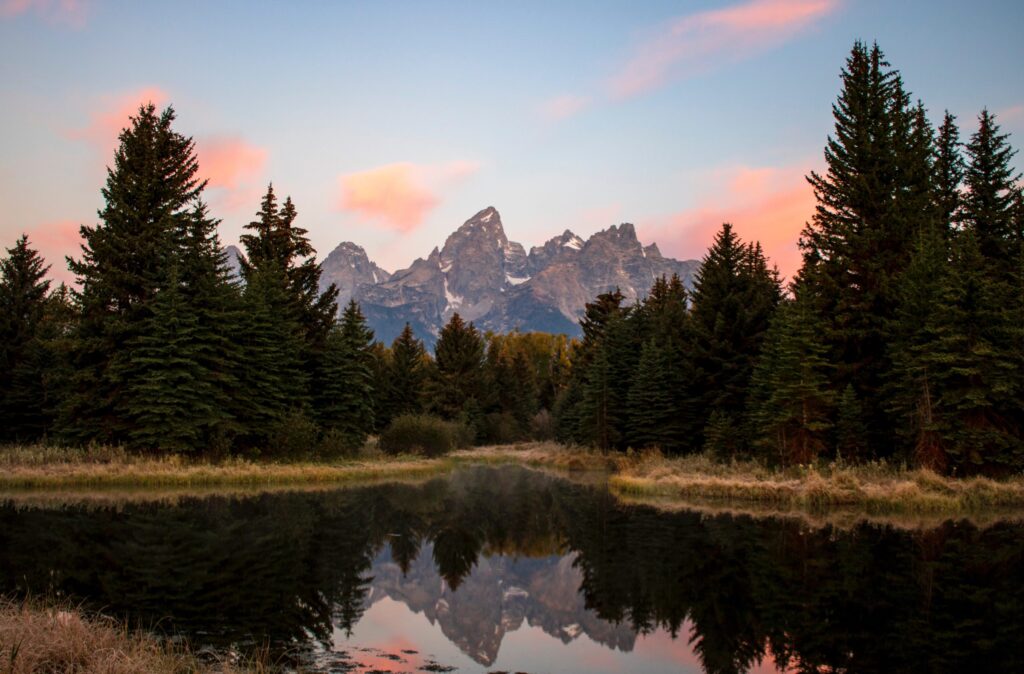In preparation for our Place-Based Symposium next week, April 22nd, Teton Science Schools had the opportunity to learn more about our keynote speaker, Amy Azano. She gives us some background on her research and what place means to her.

Teton Science Schools: What experiences, personal or professional, informed your principal areas of research?
Amy Azano: I grew up in the country, and my “rural literacies” rooted me to my place and its people and our community. It wasn’t until I left that I would come to understand just how much my place had shaped me or how others would make assumptions about me based on how I sounded or where I was from. When people made fun of my accent or told “jokes” at my expense, I lacked the critical literacy skills to speak back to those insults. I’ve always been a reader and writer and used to teach high school English and creative writing, so for me literacy was an entry point for exploring the power of place and understanding equity issues for rural learners, teachers, and schools.
Teton Science Schools: How did you come to focus on rural schools and their distinct needs?
Amy Azano: Really it was when I became an English teacher at a well-resourced suburban high school where I was able to witness opportunity gaps related to things like AP courses, robotics club, language classes, extracurriculars, and so on that were afforded to my students compared to the ones offered in my rural hometown. I often point to that experience as my “motivating discontent,” and the reason I pursued my doctorate to be a rural education scholar.
Teton Science Schools: What was your first story of progress or success that made you confident that you were doing the right thing?
Amy Azano: It was actually the opposite! I came to my very first research study thinking place was the be all end all and would help rural students access the curriculum and see themselves and their rural community in this vibrant way—and there were definitely moments of that. But really I learned that place is a possibility and that we need a critical lens in our teaching and consumption of place if we want to actualize that possibility.
Teton Science Schools: Your keynote speech focuses on ways to safely and courageously learn for ourselves and teach others to value place. Can you share an example of a time you had to show that courage for yourself or for others?
Amy Azano: Yes, and I’ll get into this more in my keynote, but in 2020 the former mayor of the town I grew up in made a public and racist Facebook post about Vice President Harris. As the story got picked up by major news outlets, my town was reduced to his action, like oh, here’s one more rural town full of rednecks—and that’s the very stigma I have been resisting all my life. But, at the same time, as some supported the mayor and defended his actions, I had to reevaluate my relationship and ask hard questions about the people and places I love.
Teton Science Schools: What is your advice to those who want to create change but don’t know where or how to start?
Amy Azano: Start local. Start with what and where you know. Remember that working toward equity at your local school, Chamber of Commerce, community center, or wherever is creating change.
Teton Science Schools: What are the most critical changes that we must make to face the future effectively?
Amy Azano: With regard to place, we can start thinking about place as more than an instructional strategy. It can inform the ways we advocate for equity in educational policy, how we approach research, interpret and report data, and so on.
Teton Science Schools: What common misconceptions have you seen about place and how can we address and communicate the value of place more effectively?
Amy Azano: It’s important to remember that no place is just one place. Place is powerful because of the meanings we attach to it—positive and negative—so there are endless meanings a place can hold for different people.
Amy Price Azano, PhD, is an Associate Professor of Rural Education and Adolescent Literacy in the School of Education at Virginia Tech and focuses her scholarship on issues of equity for rural learners. Dr. Azano served as the co-PI on the U.S. Department of Education grant, “Promoting PLACE in Rural Schools,” and is the current PI on two place-based educational grants focused on developing talent in high-poverty rural areas. Dr. Azano is a national and international leader in rural education research who has authored more than 50 peer-reviewed journal articles and book chapters; chairs the American Educational Research Association’s Rural Education Special Interest Group; and is co-editor of The Rural Educator.
She is the co-author of Teaching in Rural Places: Thriving in Rural Classrooms, Schools, and Communities (2021, Routledge); and co-editor of the research monograph Gifted Education in Rural Schools: Developing Place-Based Interventions (2021, Routledge) and The Bloomsbury Handbook of Rural Education in the United States (2021, Bloomsbury). Dr. Azano is the 2021 recipient of the Brzezinski Memorial Research Award by the National Rural Education Association.


